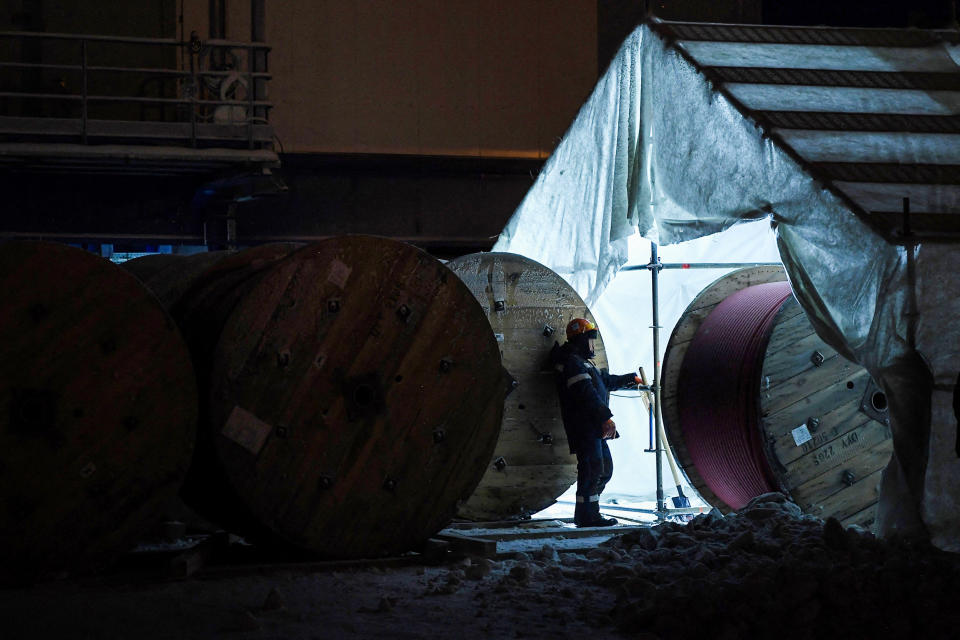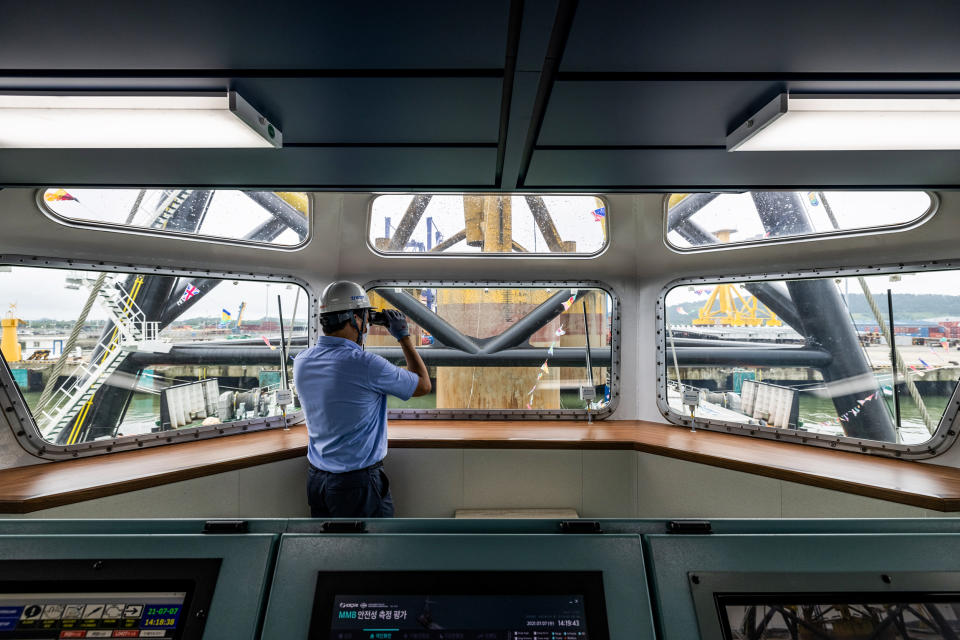Fight against climate change takes on national security implications
The world’s transition away from fossil energy has become a matter of national and global security after Russia’s invasion of Ukraine, according to energy industry experts.
But that transition is still a decadeslong project. In the near-term, a quick shift away from Russian energy will mean a need to embrace some dirtier options and a re-evaluation of more contentious alternatives, including nuclear power.
“The moral imperative here is to cut off the supply of Russian fossil fuels as quickly as possible for Europe,” said Oleksiy Tatarenko, a Ukrainian policy expert who leads a climate and industry program at the Rocky Mountain Institute, a nonprofit organization that works to promote green energy.
Tatarenko, who has family members still living in Ukraine, said the energy consequences of Russia’s invasion have been swift. The United States plans to provide Europe with more liquified natural gas (LNG), which is more carbon intensive than piped gas. Countries like Germany, which pulled out of a huge pipeline project with Russia, are building more terminals to receive it.
“What probably came as a surprise for Russia is how decisive and united Europe has become in its resolve to walk away from that dependency,” Tatarenko said of Russian gas.

The situation highlights some of the bigger challenges around the world’s shift to green energy, which is not without its own geopolitical wrinkles. Some worry the race to electrify could intensify U.S. and European reliance on China.
“We have complete dependence on China for batteries for electric vehicles,” said Robbie Diamond, the president of Securing America’s Energy Future, a nonprofit group that advocates for green transportation. He added that it was paramount to “ensure the solutions for the long-term problems don’t create a dependence on an authoritarian regime.”
For now, fossil fuels remain the quickest option to replace Russian energy and mitigate its impact on the global energy market. Last week, President Joe Biden resumed leasing federal lands for oil and gas drilling and boosted ethanol-rich fuels, despite pollution concerns. The month before, the administration released oil from the country’s strategic reserve and the president promised to get more tankers filled with liquified natural gas to Europe.
Those measures were balanced by separate federal efforts to maintain or ramp up sources of carbon-free electricity. Late last month, Biden invoked the Defense Production Act in an attempt to stimulate U.S. mining of critical minerals for batteries. On Wednesday, he announced a $6 billion effort to save nuclear plants at risk of closing, saying the country needed their carbon-free power to combat climate change. Some environmental groups, including the Sierra Club, oppose the measure.
Europe spends roughly 800 million euros a day ($864 million) on Russian oil and gas, according to Carolyn Kissane, a professor at the Center for Global Affairs at New York University. Leaders are considering an embargo on Russian oil and gas, The New York Times reported last week.
The scale-up comes as scientific leaders are warning about the risk of investing in fossil fuels. The U.N.’s latest climate report found that the infrastructure already built or planned for fossil fuels will push the world past its most ambitious climate goal. U.N. Secretary-General António Guterres has warned against further investment, saying it would be “moral and economic madness.”
The European economy will also likely be driven by more carbon intensive energy sources, experts said.
How leaders navigate the tension between short- and long-term needs could ultimately help determine how much our planet warms.
“That tension is reality. It’s a reflection of the fact we are nowhere close on our climate goals, but we need to have affordable energy and keep the lights on for people,” said Jason Bordoff, the founder and director of Columbia University’s global energy institute. The war “is reminding people that in the long term we are more secure if we’re less dependent on the inevitably geopolitically risky global trade of hydrocarbons.”

But renewable energy alone can’t immediately pick up the slack, because it will take years to build and scale up, Diamond said. The E.U. currently generates more than 22 percent of its energy needs from renewable energy.
That puts pressure on European leaders, who face soaring energy prices.
“Politicians will always make sure your gas tank is full and your lights will stay on,” Diamond said. “They will do anything during a crisis to make it happen.”
Some experts expect the new fuel mix to drive global emissions higher than expected. Trevor Houser, a partner at the Rhodium Group, a research firm, said his guess is that emissions may trend lower — for the wrong reasons.
“Higher energy prices and slower economic growth,” he explained.
The war has also brought renewed attention to nuclear energy, which has become a flashpoint in recent years.
The sudden jolt to energy markets highlights nuclear power’s benefits in Europe. But news images of Russian forces shelling the Zaporizhzhia nuclear plant underline the safety concerns.
At least in the short term, the war has begun to change perceptions.
“The conflict is making more European policymakers reconsider their plans to shut down nuclear power plants,” Houser said. “The advantages of keeping nuclear plants online in terms of the zero carbon electricity they provide outweigh concerns.”
Belgium has postponed decommissioning two nuclear power plants and France said it would build more.
Still, Germany is going ahead with plans to decommission its remaining plants — at a cost to the climate.
“In the short term, they’ll use more coal and gas,” Kissane said.

